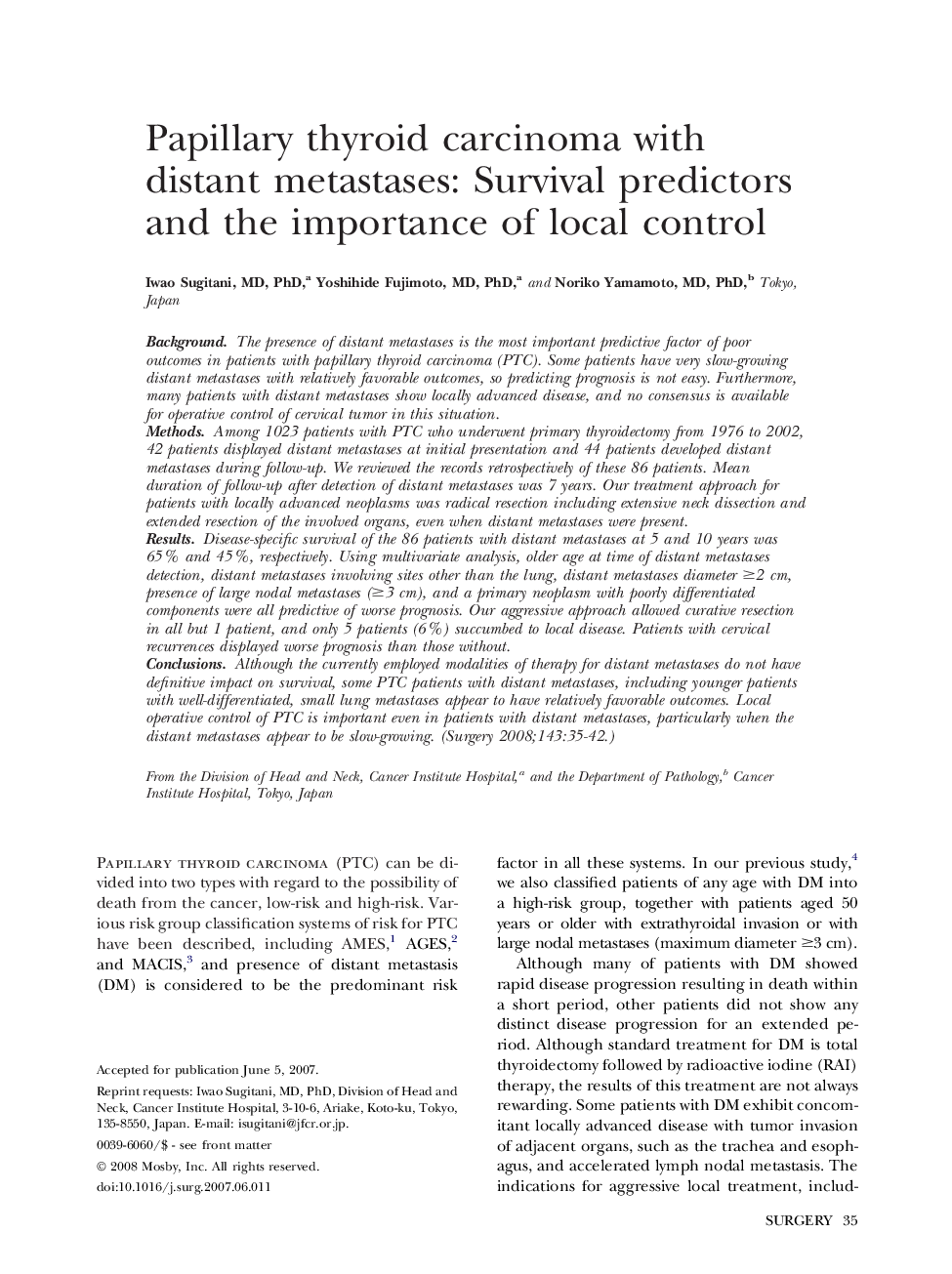| Article ID | Journal | Published Year | Pages | File Type |
|---|---|---|---|---|
| 4308429 | Surgery | 2008 | 8 Pages |
BackgroundThe presence of distant metastases is the most important predictive factor of poor outcomes in patients with papillary thyroid carcinoma (PTC). Some patients have very slow-growing distant metastases with relatively favorable outcomes, so predicting prognosis is not easy. Furthermore, many patients with distant metastases show locally advanced disease, and no consensus is available for operative control of cervical tumor in this situation.MethodsAmong 1023 patients with PTC who underwent primary thyroidectomy from 1976 to 2002, 42 patients displayed distant metastases at initial presentation and 44 patients developed distant metastases during follow-up. We reviewed the records retrospectively of these 86 patients. Mean duration of follow-up after detection of distant metastases was 7 years. Our treatment approach for patients with locally advanced neoplasms was radical resection including extensive neck dissection and extended resection of the involved organs, even when distant metastases were present.ResultsDisease-specific survival of the 86 patients with distant metastases at 5 and 10 years was 65% and 45%, respectively. Using multivariate analysis, older age at time of distant metastases detection, distant metastases involving sites other than the lung, distant metastases diameter ≥2 cm, presence of large nodal metastases (≥3 cm), and a primary neoplasm with poorly differentiated components were all predictive of worse prognosis. Our aggressive approach allowed curative resection in all but 1 patient, and only 5 patients (6%) succumbed to local disease. Patients with cervical recurrences displayed worse prognosis than those without.ConclusionsAlthough the currently employed modalities of therapy for distant metastases do not have definitive impact on survival, some PTC patients with distant metastases, including younger patients with well-differentiated, small lung metastases appear to have relatively favorable outcomes. Local operative control of PTC is important even in patients with distant metastases, particularly when the distant metastases appear to be slow-growing.
